Roch the win i the clear day's dawin
Blaws the clouds heilster-gowdie owre the bay
But thair's mair nor a roch win blawin
Thro the Great Glen o the warl the day
It's a thocht that wad gar our rottans
Aa thae rogues that gang gallus fresh an gay
Tak the road an seek ither loanins
Wi thair ill-ploys tae sport an play
Nae mair will our bonnie callants
Merch tae war whan our braggarts crousely craw
Nor wee weans frae pitheid an clachan
Murn the ships sailin doun the Broomielaw
Broken faimilies in launs we've hairriet
Will curse 'Scotlan the Brave' nae mair, nae mair
Black an white ane-til-ither mairriet
Mak the vile barracks o thair maisters bare
Sae come aa ye at hame wi freedom
Never heed whit the houdies croak for Doom
In yer hous aa the bairns o Aidam
Will fin breid, barley-bree an paintit room
Whan MacLean meets wi's friens in Springburn
Aa thae roses an geeans will turn tae blume
An a black laud frae yont Nyanga
Dings the fell gallows o the burghers doun.
Blaws the clouds heilster-gowdie owre the bay
But thair's mair nor a roch win blawin
Thro the Great Glen o the warl the day
It's a thocht that wad gar our rottans
Aa thae rogues that gang gallus fresh an gay
Tak the road an seek ither loanins
Wi thair ill-ploys tae sport an play
Nae mair will our bonnie callants
Merch tae war whan our braggarts crousely craw
Nor wee weans frae pitheid an clachan
Murn the ships sailin doun the Broomielaw
Broken faimilies in launs we've hairriet
Will curse 'Scotlan the Brave' nae mair, nae mair
Black an white ane-til-ither mairriet
Mak the vile barracks o thair maisters bare
Sae come aa ye at hame wi freedom
Never heed whit the houdies croak for Doom
In yer hous aa the bairns o Aidam
Will fin breid, barley-bree an paintit room
Whan MacLean meets wi's friens in Springburn
Aa thae roses an geeans will turn tae blume
An a black laud frae yont Nyanga
Dings the fell gallows o the burghers doun.
Contributed by Alessandro - 2009/9/24 - 14:22
Language: English
Versione inglese da unionsong.com
It's a rough wind in the clear day's dawning
Blows the clouds head-over-heels across the bay
But there's more than a rough wind blowing
Through the Great Glen of the world today
It's a thought that would make our rodents,
All those rogues who strut and swagger,
Take the road and seek other pastures
To carry out their wicked schemes
No more will our fine young men
March to war at the behest of jingoists and imperialists
Nor will young children from mining communities and rural hamlets
Mourn the ships sailing off down the River Clyde
Broken families in lands we've helped to oppress
Will never again have reason to curse the sound of advancing Scots
Black and white, united in friendship and marriage,
Will make the slums of the employers bare
So come all ye who love freedom
Pay no attention to the prophets of doom
In your house all the children of Adam
Will be welcomed with food, drink and clean bright accommodation
When MacLean returns to his people
All the roses and cherry trees will blossom
And the black guy from Nyanga
Will break the capitalist stranglehold on everyone's life
Blows the clouds head-over-heels across the bay
But there's more than a rough wind blowing
Through the Great Glen of the world today
It's a thought that would make our rodents,
All those rogues who strut and swagger,
Take the road and seek other pastures
To carry out their wicked schemes
No more will our fine young men
March to war at the behest of jingoists and imperialists
Nor will young children from mining communities and rural hamlets
Mourn the ships sailing off down the River Clyde
Broken families in lands we've helped to oppress
Will never again have reason to curse the sound of advancing Scots
Black and white, united in friendship and marriage,
Will make the slums of the employers bare
So come all ye who love freedom
Pay no attention to the prophets of doom
In your house all the children of Adam
Will be welcomed with food, drink and clean bright accommodation
When MacLean returns to his people
All the roses and cherry trees will blossom
And the black guy from Nyanga
Will break the capitalist stranglehold on everyone's life
Contributed by Alessandro - 2009/9/24 - 14:26
Language: Italian
Versione italiana di Carla Sassi
(dal libro "Poeti della Scozia contemporanea" a cura di Carla Sassi e Marco Fazzini, Supernova Editore, Venezia 1992)
"L’ho scritta sotto la spaventosa ombra della bomba. Nella canzone ho cercato di svolgere certi problemi che come Scozia e come mondo ci troviamo ad affrontare.
Dobbiamo far fronte al terribile problema del razzismo, a quello non meno terribile di una umanità accomunata e alla minaccia dell’annichilimento totale."
(Hamish Henderson)
(dal libro "Poeti della Scozia contemporanea" a cura di Carla Sassi e Marco Fazzini, Supernova Editore, Venezia 1992)
"L’ho scritta sotto la spaventosa ombra della bomba. Nella canzone ho cercato di svolgere certi problemi che come Scozia e come mondo ci troviamo ad affrontare.
Dobbiamo far fronte al terribile problema del razzismo, a quello non meno terribile di una umanità accomunata e alla minaccia dell’annichilimento totale."
(Hamish Henderson)
FREEDOM COME ALL YE
Forte il vento nell’alba del giorno chiaro
Sovverte le nuvole via per la baia,
Ma non v’è più il vento forte che soffiava
Attraverso la grande valle del mondo.
E’ un pensiero che invoglia i nostri ratti
I briganti che infieriscono felici e intatti
A prendere il cammino, in cerca di luoghi nuovi
Dove godere e giocare malvagi inganni.
Mai più la dolce gioventù dovrà
Marciare in guerra mentre i pavidi si vantano rauchi
Né i piccoli figli della miniera e del villaggio
Piangeranno le navi che salpano via dal Broomielaw.
Famiglie divise in terre da noi razziate
Non malediranno la Scozia guerriera, mai più;
Il nero e il bianco, l’uno all’altro uniti nell’amore,
Lasceranno deserte le vili caserme dei padroni.
Qui venite tutti, alla casa della libertà,
Non ascoltate i corvi che invocano rauchi la fine
Nella tua casa ogni figlio di Adamo
Troverà pane e birra e mura imbiancate.
E quando John MacLean si unirà ai compagni di Springburn
Tutte le rose ed i ciliegi fioriranno,
E un fanciullo nero dal lontano Nyanga
Frantumerà le forche feroci della città.
Forte il vento nell’alba del giorno chiaro
Sovverte le nuvole via per la baia,
Ma non v’è più il vento forte che soffiava
Attraverso la grande valle del mondo.
E’ un pensiero che invoglia i nostri ratti
I briganti che infieriscono felici e intatti
A prendere il cammino, in cerca di luoghi nuovi
Dove godere e giocare malvagi inganni.
Mai più la dolce gioventù dovrà
Marciare in guerra mentre i pavidi si vantano rauchi
Né i piccoli figli della miniera e del villaggio
Piangeranno le navi che salpano via dal Broomielaw.
Famiglie divise in terre da noi razziate
Non malediranno la Scozia guerriera, mai più;
Il nero e il bianco, l’uno all’altro uniti nell’amore,
Lasceranno deserte le vili caserme dei padroni.
Qui venite tutti, alla casa della libertà,
Non ascoltate i corvi che invocano rauchi la fine
Nella tua casa ogni figlio di Adamo
Troverà pane e birra e mura imbiancate.
E quando John MacLean si unirà ai compagni di Springburn
Tutte le rose ed i ciliegi fioriranno,
E un fanciullo nero dal lontano Nyanga
Frantumerà le forche feroci della città.
Contributed by Alessandro - 2009/9/30 - 10:59
Riccardo, ma il titolo in scozzese è corretto o non è piuttosto "Freedom Come-Aa-Ye", come lo scrive Gaughan?
Alessandro - 2009/9/24 - 19:09
Language: English
Loving this song but unable to sing the Scots, I offer a new English translation which I hope will better scan and can be sung
Jack Warshaw
www.reverbnation.com/jackwarshaw
Jack Warshaw
www.reverbnation.com/jackwarshaw
Freedom Come All Ye
Rough the wind in the clear day’s dawning
Blowing cloud billows heaving 'cross the bay
But there’s more than the wind a-blowing
Through the Great Valleys of the world today
It’s a wind that would cause our masters
Tyrants who think themselves so fine and gay
Blown away to some distant island
Where no more will they have their way
Never more will our country’s finest
March to war at some liar’s hollow cry
Nor will children from town or country
Mourn the men sailing off to fight and die
Broken families in lands we conquered
Will curse 'Scotland the Brave' no more, no more
Black and white will be one together
Strike the slums and their landlords sore
So come all you who love your freedom
Don’t believe those who preach their tales of doom
In your house all the children dwelling
Will find bread, drink and gen-rous room
When MacLean comes home to greet us
Rose and cherry will blossom in the morn
And a black lad from old Nyanga
Breaks the cruel power of the tyrants down
Rough the wind in the clear day’s dawning
Blowing cloud billows heaving 'cross the bay
But there’s more than the wind a-blowing
Through the Great Valleys of the world today
It’s a wind that would cause our masters
Tyrants who think themselves so fine and gay
Blown away to some distant island
Where no more will they have their way
Never more will our country’s finest
March to war at some liar’s hollow cry
Nor will children from town or country
Mourn the men sailing off to fight and die
Broken families in lands we conquered
Will curse 'Scotland the Brave' no more, no more
Black and white will be one together
Strike the slums and their landlords sore
So come all you who love your freedom
Don’t believe those who preach their tales of doom
In your house all the children dwelling
Will find bread, drink and gen-rous room
When MacLean comes home to greet us
Rose and cherry will blossom in the morn
And a black lad from old Nyanga
Breaks the cruel power of the tyrants down
Language: English
La versione dei Fairport Convention, nel disco “House Full – Live at the LA Troubadour” del 1970.
House Full
House Full
BATTLE OF THE SOMME
Rough the wind in the clear day's dawning
Blows the clouds heels for gowdie ow'r the bay
But there's mair nor a rough wind blawing
Through the great glen o' the world a' day
It's a thought that will garrow rottens
A' thae rogues that ken gallus, fresh and gay
Tak' the road and see gallus loanins
For they're ill 'ployed tae sport and play
Nae mair would the bonnie callants
March tae war when our braggarts crousely craw
Nor wee weans frae parteen and clachan
Mourn the ships sailing doon the Broomielaw
Broken faimlies in lands we've herriet
Will curse Scotland the Brave nae mair, nae mair
Black and white ane til ither mairriet
Mak' the vile barracks o' thier masters bare
So come all ye at hame wi' freedom
Never heed what the huddies croak for doom
In your hoose a' the bairns o' Adam
Can find bread, barley bread and painted room
When Maclean meets wi' his friens in Springburn
A' the roses and geens will turn tae bloom
And a black boy frae off Nyanga
Ding the fell gallows o' the burghers' doon
Rough the wind in the clear day's dawning
Blows the clouds heels for gowdie ow'r the bay
But there's mair nor a rough wind blawing
Through the great glen o' the world a' day
It's a thought that will garrow rottens
A' thae rogues that ken gallus, fresh and gay
Tak' the road and see gallus loanins
For they're ill 'ployed tae sport and play
Nae mair would the bonnie callants
March tae war when our braggarts crousely craw
Nor wee weans frae parteen and clachan
Mourn the ships sailing doon the Broomielaw
Broken faimlies in lands we've herriet
Will curse Scotland the Brave nae mair, nae mair
Black and white ane til ither mairriet
Mak' the vile barracks o' thier masters bare
So come all ye at hame wi' freedom
Never heed what the huddies croak for doom
In your hoose a' the bairns o' Adam
Can find bread, barley bread and painted room
When Maclean meets wi' his friens in Springburn
A' the roses and geens will turn tae bloom
And a black boy frae off Nyanga
Ding the fell gallows o' the burghers' doon
Contributed by Bernart Bartleby - 2015/9/11 - 11:47
×
![]()
Note for non-Italian users: Sorry, though the interface of this website is translated into English, most commentaries and biographies are in Italian and/or in other languages like French, German, Spanish, Russian etc.

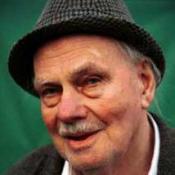
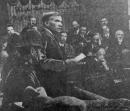
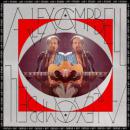
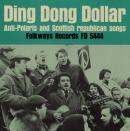


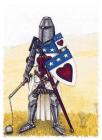
Written to the pipes tune The Bloody Fields of Flanders
Registrata, fra gli altri, anche da Dick Gaughan in "Earl O' Moray" (1978)
The song was written in 1960, to an adaptation of the First World War pipe march The Bloody Fields of Flanders, which Henderson first heard played on the Anzio beachhead. The lyrics were written following a visit and discussions with Ken Goldstein, an American researcher at the School of Scottish Studies, who had enjoyed Henderson's rendition of the tune. It was subsequently adopted by Glasgow Peace Marchers CND demonstrators, and the anti-Polaris campaign. A product of the Scottish Folk revival, and originally a sixties protest song, it is still popular in Scotland and overseas. Henderson described it as "expressing my hopes for Scotland, and for the survival of humanity on this beleaguered planet."
It is viewed by many as Scotland's 'alternative' national anthem (although there is no 'official' Scottish anthem). However, Henderson never wanted it to become as he felt that part of its strength lies in the fact that it is an alternative, an "International Anthem".
The confident "more than a rough wind" in the first verse has two references -- the first to Harold MacMillan's remarkable "Winds of Change" speech about Africa in the early 1960s, and the second as a riposte to the "all the answers are blowing in the wind" pessimism of the "protest song" purveyors.
The title is a nod towards the genre of songs known as "Come all ye's", the kind of song which begins with a call to listen -- "Come all ye (sons of liberty/ good people/ tramps and hawkers etc) and listen to my song" (Dick Gaughan)